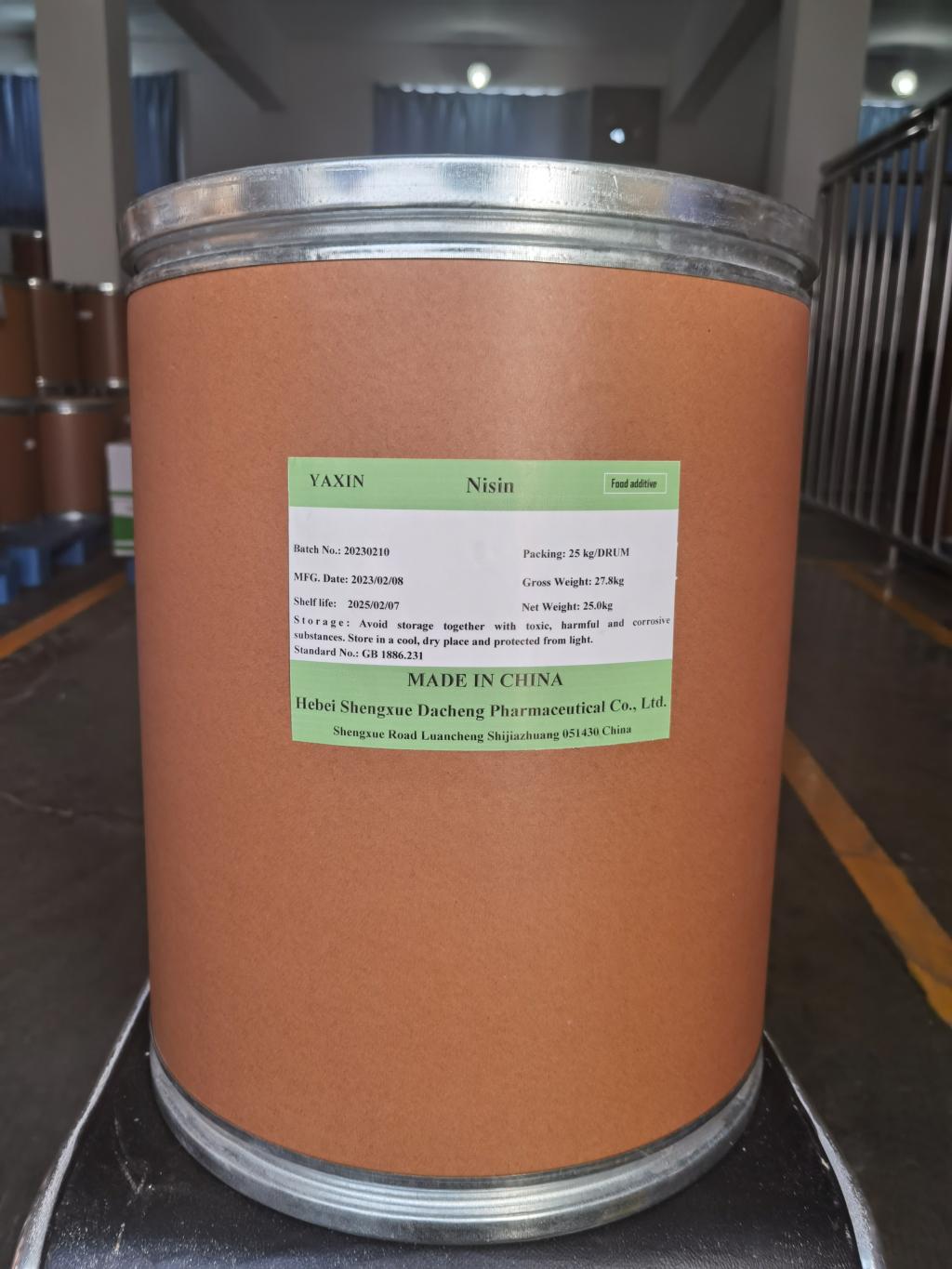Tel:+8618231198596

News
 CONTACT
CONTACT
 CONTACT
CONTACT
- Linkman:Linda Yao
- Tel: +8618231198596
- Email:linda.yao@dcpharma.cn
- Linkman:CHARLES.WANG
- Department:Overseas
- Tel: 0086 0311-85537378 0086 0311-85539701
News
What is Nisin and what is it used for?
TIME:2023-03-13
Nisin was first discovered in the 1920s by a British scientist named Arthur Jukes, who isolated it from a strain of Lactococcus lactis. It was later found to be a potent antimicrobial agent that can inhibit the growth of a wide range of gram-positive bacteria, including Listeria, Staphylococcus, and Streptococcus. Nisin is particularly effective against certain strains of Listeria, a bacteria that can cause serious foodborne illnesses.
Nisin is used in a variety of food products, including cheese, yogurt, meat products, canned vegetables, and baked goods. In these products, nisin helps to prevent the growth of harmful bacteria and other microorganisms, thereby extending the shelf life of the product. Nisin is also used as a natural preservative in non-food products such as cosmetics and personal care items.
One of the benefits of using nisin as a preservative is that it is a natural and safe alternative to synthetic preservatives. Synthetic preservatives, such as sodium benzoate and potassium sorbate, have been linked to a range of health concerns, including allergic reactions and even cancer. Nisin, on the other hand, is a naturally occurring substance that is produced by bacteria that are commonly found in the human digestive tract. It has been extensively studied for its safety and efficacy, and is generally regarded as safe for human consumption.
Nisin works by disrupting the cell membrane of bacteria, causing them to leak and ultimately leading to their death. Unlike many antibiotics, which target specific types of bacteria, nisin is effective against a broad range of gram-positive bacteria. This makes it a versatile and effective antimicrobial agent that can be used in a wide range of food and non-food products.
The production of nisin typically involves the fermentation of a starter culture of Lactococcus lactis. The bacteria produce nisin as a byproduct of their normal metabolic processes, and the peptide can be extracted and purified from the fermentation broth. Nisin is then typically added to food products at a concentration of 0.025-2.5 mg/kg, depending on the product and the desired level of preservation.
In addition to its use as a preservative, nisin has also been studied for its potential health benefits. Some studies have suggested that nisin may have anti-inflammatory and immune-modulating effects, and may be useful in the treatment of conditions such as inflammatory bowel disease and rheumatoid arthritis. However, more research is needed to fully understand the potential health benefits of nisin and its mechanisms of action.
Despite its generally recognized safety, there are some potential risks associated with the use of nisin. Some studies have suggested that high doses of nisin may cause gastrointestinal upset, and there have been reports of allergic reactions to nisin in some individuals. Additionally, the overuse of nisin or other preservatives can contribute to the development of antibiotic-resistant bacteria, which can pose a serious public health threat.
In conclusion, nisin is a natural antimicrobial peptide that is widely used in the food industry as a preservative. It is a safe and effective alternative to synthetic preservatives, and has been extensively studied for its safety and efficacy. While there are some potential risks associated with its use, nisin is generally recognized as a safe and effective way to extend the shelf life of food and non-food products. As research into the potential health benefits of nisin continues, it may have the potential to be used as a therapeutic agent for a variety of conditions. However, it is important to continue to monitor its use and potential risks to ensure its safety and efficacy.
In terms of regulatory guidelines, the use of nisin in food products is regulated by government agencies such as the United States Food and Drug Administration (FDA) and the European Food Safety Authority (EFSA). These agencies have established guidelines for the safe use of nisin in food products, including maximum allowable concentrations and labeling requirements.
Overall, nisin is a valuable tool for the food industry as a natural preservative. Its effectiveness, safety, and versatility make it an ideal alternative to synthetic preservatives, and ongoing research into its potential health benefits may lead to new therapeutic applications in the future. As with any food additive or ingredient, it is important to use nisin in moderation and to follow regulatory guidelines to ensure its safety for consumers.
Previous:none
Next:Is Nisin safe for consumption?
- Tel:+8618231198596
- Whatsapp:18231198596
- Chat With Skype







